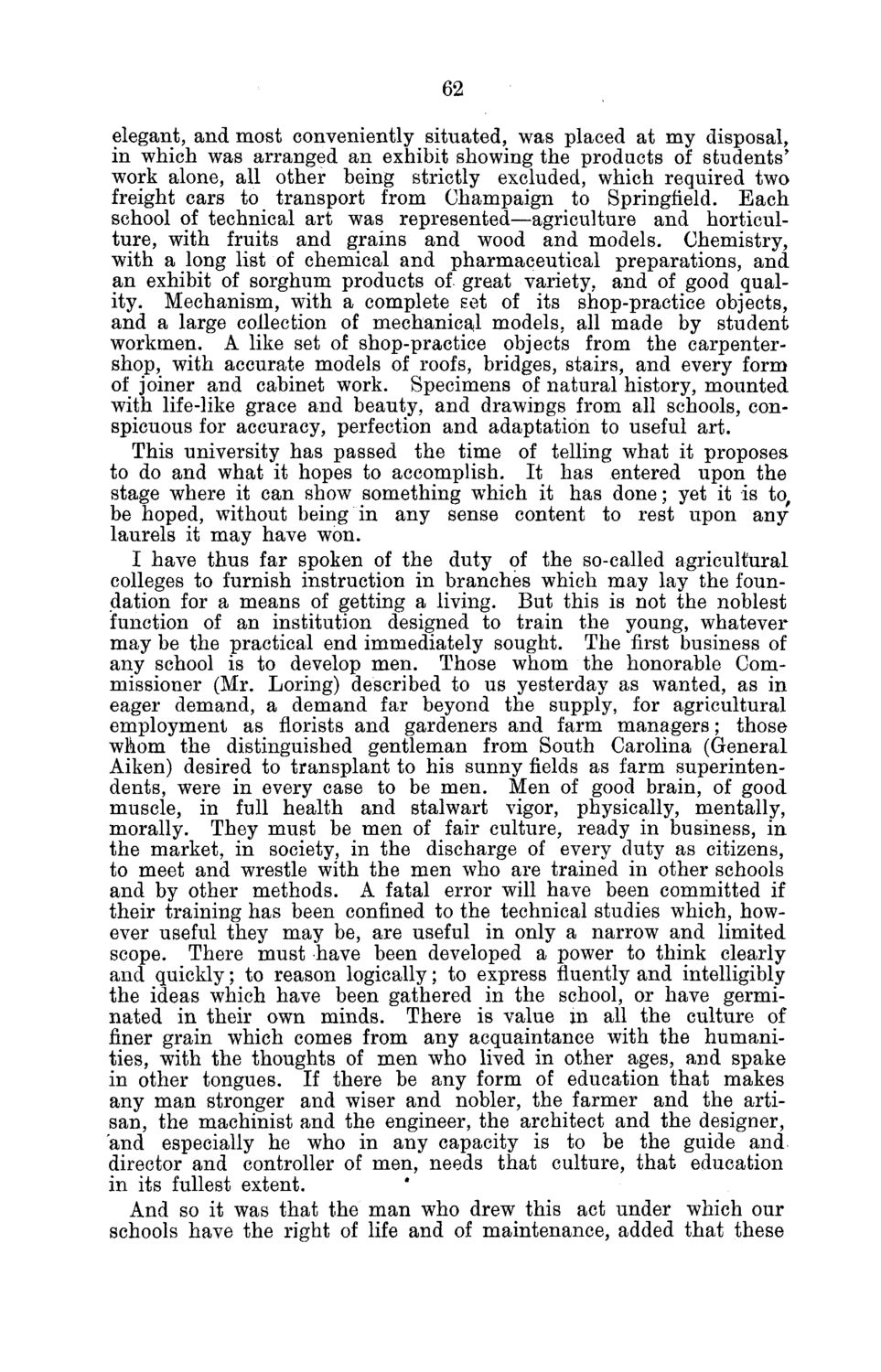| |
| |
Caption: Board of Trustees Minutes - 1882
This is a reduced-resolution page image for fast online browsing.

EXTRACTED TEXT FROM PAGE:
62 elegant, and most conveniently situated, was placed at my disposal, in which was arranged an exhibit showing the products of students* work alone, all other being strictly excluded, which required two freight cars to transport from Champaign to Springfield. Each school of technical art was represented—agriculture and horticulture, with fruits and grains and wood and models. Chemistry, with a long list of chemical and pharmaceutical preparations, and an exhibit of sorghum products of great variety, and of good quality. Mechanism, with a complete set of its shop-practice objects, and a large collection of mechanical models, all made by student workmen. A like set of shop-practice objects from the carpentershop, with accurate models of roofs, bridges, stairs, and every form of joiner and cabinet work. Specimens of natural history, mounted with life-like grace and beauty, and drawings from all schools, conspicuous for accuracy, perfection and adaptation to useful art. This university has passed the time of telling what it proposes to do and what it hopes to accomplish. It has entered upon the stage where it can show something wThich it has done; yet it is to, be hoped, without being in any sense content to rest upon any laurels it may have won. I have thus far spoken of the duty of the so-called agricultural colleges to furnish instruction in branches which may lay the foundation for a means of getting a living. But this is not the noblest function of an institution designed to train the young, whatever may be the practical end immediately sought. The first business of any school is to develop men. Those whom the honorable Commissioner (Mr. Loring) described to us yesterday as wanted, as in eager demand, a demand far beyond the supply, for agricultural employment as florists and gardeners and farm managers; those whom the distinguished gentleman from South Carolina (General Aiken) desired to transplant to his sunny fields as farm superintendents, were in every case to be men. Men of good brain, of good muscle, in full health and stalwart vigor, physically, mentally, morally. They must be men of fair culture, ready in business, in the market, in society, in the discharge of every duty as citizens, to meet and wrestle with the men who are trained in other schools and by other methods. A fatal error will have been committed if their training has been confined to the technical studies which, however useful they may be, are useful in only a narrow and limited scope. There must have been developed a power to think clearly and quickly; to reason logically; to express fluently and intelligibly the ideas which have been gathered in the school, or have germinated in their own minds. There is value m all the culture of finer grain which comes from any acquaintance with the humanities, with the thoughts of men who lived in other ages, and spake in other tongues. If there be any form of education that makes any man stronger and wiser and nobler, the farmer and the artisan, the machinist and the engineer, the architect and the designer, and especially he who in any capacity is to be the guide and director and controller of men, needs that culture, that education in its fullest extent. And so it was that the man who drew this act under which our schools have the right of life and of maintenance, added that these
| |